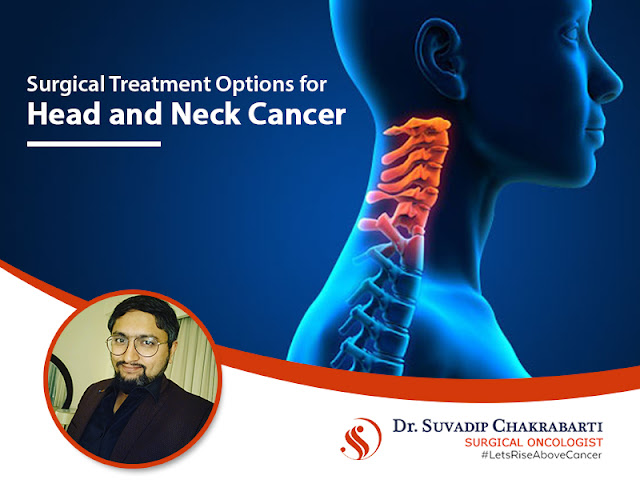Overview
Most of the cancers of head and neck can be treated, especially if they are detected early. Although eliminating the cancer is the primary objective of treatment, preserving the function of the surrounding organs, nerves, and tissues is also very important, says a renowned headand neck cancer surgeon in Kolkata. When planning treatment, oncologists consider how a specific treatment might affect a patient's quality of life, including how he/she feels, looks, talks, eats, and breathes.
Your treatment plan may also involve treatment for the symptoms and side effects. The main treatment options, however, are surgery, radiation therapy, and chemotherapy.
The type and stage of the cancer, and its potential
side effects, as well as the patient's preferences and general health - all
influence the treatment options and guidelines.
Surgical Treatment
During surgery, the aim is to eliminate the cancerous
tumour as well as some of the healthy tissue from the surrounding area. The
following are examples of head and neck cancer surgeries:
Laser technology: This may be used to treat a tumour that is still in its early stages, particularly if it is located in the larynx.
Neck dissection or lymph node dissection: If cancer has spread to the lymph nodes in the neck, the best head & neck cancer doctor in Kolkata can remove them. This can be accomplished in conjunction with excision, which is a procedure that removes the cancerous tumour as well as any healthy tissue around it, known as a margin.
Plastic (reconstructive) surgery: Reconstructive or cosmetic surgery may be used to replace missing tissue after cancer surgery that needs major tissue removal, such as the jaw, skin, pharynx, or tongue.
The type and location of cancer surgery have an impact on the side effects. Every patient is advised to discuss the possible side effects of a particular operation with their oncologist in Kolkata, as well as how long such side effects are likely to last.

0 Comments
Post a Comment